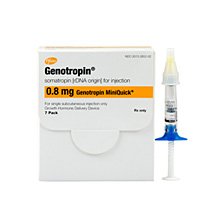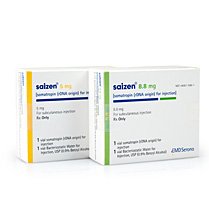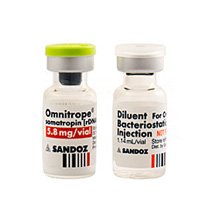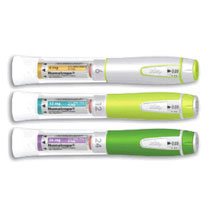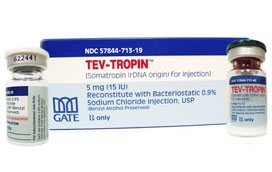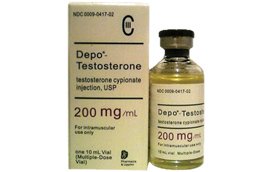HGH and Vitamins That Help Increase Growth Hormone

The use of HGH and vitamins to increase growth hormone has been well documented. Adults deficient in growth hormone may suffer from many symptoms, including loss of energy, excessive skin sagging and wrinkles, weight gain, hair loss or thinning, muscle decline, reduced bone density, problems with memory, impaired cognitive functions, frequent illness, and more. The right type of HGH and vitamins can help.
HGH is human growth hormone, a biologically identical version of a chemical messenger in the body called somatotropin (aka growth hormone). We know that doctors recommend vitamin supplements to people who may be deficient or not getting enough crucial vitamins in their diets. Hormone replacement therapy is also offered when menopause or andropause symptoms appear. Supplementing with HGH therapy is no different. If the body is no longer producing enough GH to meet its daily needs, then HGH can fill in the gap.
One connection that we often look at is the HGH vitamin C relationship. Many older adults with low growth hormone levels also have a lower incidence of vitamin C concentration. This is especially prevalent in those who are obese or have an increased risk of heart disease. The best answer here is to supplement HGH therapy with consumption of foods that are high in vitamin C. This will provide the body with an added boost for GH production.
The importance of vitamin D for bone health is well-known, but its connection to growth hormone is becoming clearer with each new report. There is a complex process between HGH and vitamin D that occurs when GH stimulates the liver to produce and secrete insulin growth factor 1 into the bloodstream. Higher vitamin D levels help increase circulating IGF-1 in the bloodstream. IGF-1 is a mitigator of the functions of growth hormone. Together, they stimulate cellular regeneration – a process vital to the supply chain of new cells for the maintenance of strong bones and muscles.
Vitamin B12 and HGH – How They Work Together
You have probably heard about vitamin B12 at some point in your life. It is one of the most commonly known and understood B vitamins. B12 encourages healthy functioning blood cells and nerves. It is necessary for the construction of DNA molecules. A look at how HGH and vitamin B 12 work well together begins with an examination of their individual functions.
HGH empowers the metabolism to engage in the proper processing of food – initiating a conversion of what is consumed into energy rather than stored fat. Vitamin B12 also helps to keep the body feeling energized and strong. If both of these substances are deficient in the body, you experience a double drain on energy stores.
Because vitamin B12 comes directly from the food a person consumes, if growth hormone decline interferes with ideal metabolic functions, the body may not properly process and utilize vitamin B12.
How to Get HGH and Vitamin B12
A healthy diet is crucial for physical health. They say you are what you eat, and consuming too much of foods that are bad and not enough of those items that are good can affect both hormone and vitamin levels in the body. Just as a car needs gas and oil, the human body requires good nutrition, sleep, and exercise to move efficiently.
For those dealing with deficiencies, this can be done with supplemental HGH, vitamins, exercise, and getting between 7 and 9 hours of sleep each night. Reducing stress is another important factor as people with high levels of stress often produce more cortisol (the stress hormone). Elevated levels of cortisol inhibit growth hormone secretion.
Excellent sources of vitamin B12 that are also good for people who want to increase growth hormone levels include organic dairy (preferably from grass-fed cows, liver, clams, fish, free-range organic poultry, and grass-fed beef. Intermittent fasting has also proven beneficial for increasing GH levels.
Once the hormone specialist runs detailed blood tests to detect what is missing in the body, the proper supplementation with HGH and vitamins is possible. To learn more, please contact the hormone specialists at Greenberg Health for a no-cost, no-obligation consultation.


















 Norditropin
Norditropin